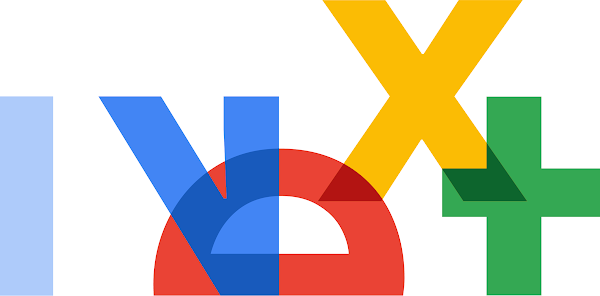Over the last few months, I’ve been blessed with a front-line opportunity to partner with many of the most forward-leaning technology companies using generative AI. I felt fortunate enough already to join Google Cloud last year — largely because I believe the companies who are able to harness modern analytics and AI are the ones who will flourish, and I believe no one is better positioned to meet this need than Google. I certainly didn’t predict the wave of demand we’d see for gen AI when I joined, but I couldn’t imagine a better place to be.
Rather than going on about why I think gen AI will transform every industry and domain, we’ve rounded up some use cases and demos showcasing what we’re working on with these partners. Thanks to all the partners listed below, we’ve had the opportunity to learn and grow with top innovators, and to help customers accelerate their gen AI agendas.
Aible gives enterprises a fast and secure path to getting value from AI. Designed for business users, Aible offers a simple interface where users can start chatting and asking questions, leveraging their structured and unstructured data in their virtual private cloud. As users provide feedback or edit chat responses, Aible improves the generative AI outputs automatically. Aible double-checks the answers of the generative AI automatically to reduce hallucinations. It also offers visualization capabilities through Looker with one click. Aible is built on Google Cloud and leverages BigQuery, Vertex AI, and PaLM 2, giving businesses more than 4x faster analytics and 9x lower costs. Aible’s solution is available on Google Cloud Marketplace.
DataStax gives organizations the cloud database and streaming technologies they need to build real-time, human-like, gen AI-powered digital experiences. DataStax’s AstraDB database-as-a-service (DBaaS) is built on Apache Cassandra, a powerful and highly scalable distributed database, and leverages Google BigQuery, Dataflow, and Vertex AI for generative AI. With DataStax, companies can build sophisticated AI assistants and enable semantic caching for gen AI, large language model (LLM) chat history, and more. They can also take advantage of vector search, which is a key capability for letting databases provide long-term information retrieval for AI applications.
Dialpad’s AI-powered customer intelligence platform helps sales and service teams have more efficient and successful customer conversations. Dialpad powers voice and video meetings on any device, and its artificial intelligence, Dialpad Ai, generates insights and tips in real time. Reps receive meeting summaries, highlights of essential information, action items, and context-sensitive suggestions and prompts as the conversation is happening. These capabilities are powered end-to-end by Google Cloud — from the infrastructure that allows Dialpad to instantly deploy and scale, to automation and assistance driven by Vertex AI.
Neo4j lets enterprises cost-effectively turn their structured and unstructured data into knowledge graphs for insights and recommendations that are accurate, transparent, and explainable. Neo4j’s graph database works with the generative AI capabilities in Vertex AI to digest data and extract entities and relationships, so that users can automatically generate knowledge graphs, reducing the costs to get started with graphs. Additionally, chatbots enable business users to interact with knowledge graphs using natural language, making knowledge graph insights accessible to users beyond data scientists.
SAP and Google Cloud offer an open data solution that uses generative AI to uncover unexpected correlations in purchase orders, revealing information on emissions and carbon footprint which were previously unavailable. Companies can bring together their previously disparate SAP and non-SAP data in a comprehensive and open data cloud through SAP Datasphere and Google Cloud Cortex Framework on BigQuery. And they can use Vertex AI and Google Cloud’s generative AI capabilities to uncover previously invisible insights from that data for virtually any use case, including sustainability, HR, commerce, procurement, finance, and manufacturing improvements.
Typeface, Typeface is an enterprise-grade generative AI platform to supercharge personalized content creation. Integration with Google’s large language models allows Typeface to unite content velocity with brand personalization and control. Google customers can now create exceptional, on-brand content faster and easier than ever before. Typeface provides industry-first self-serve solutions for complete lifecycle content development, so every employee can craft captivating content with ease, speed, and brand authenticity.
Human capital management provider UKG is leveraging Google Cloud’s foundation models such as PaLM 2, Vertex AI, and its own AI models to create and embed generative AI into its solutions. UKG gives managers and team leaders more conversational interactions, augments requests with insights, and supports leaders with better decision-making to enhance the employee experience. Teams can generate job descriptions, proactively detect bias in those descriptions, draft interview questions, and more. Additionally, employees can interact with data in a conversational way, spend more time doing the things that are more meaningful to them, and build workforces with diversity, equity, inclusion, and belonging at their core.
More generative AI partner offerings on the horizon
One exciting thread runs across all of these solutions: Gen AI is making new ideas, efficiencies, experiences, and offerings possible for organizations, their employees, and their customers. We hope these demos give you inspiration for what you can do with gen AI in your business and look forward to sharing more with you from our open and innovative AI partner ecosystem.
Cloud BlogRead More


